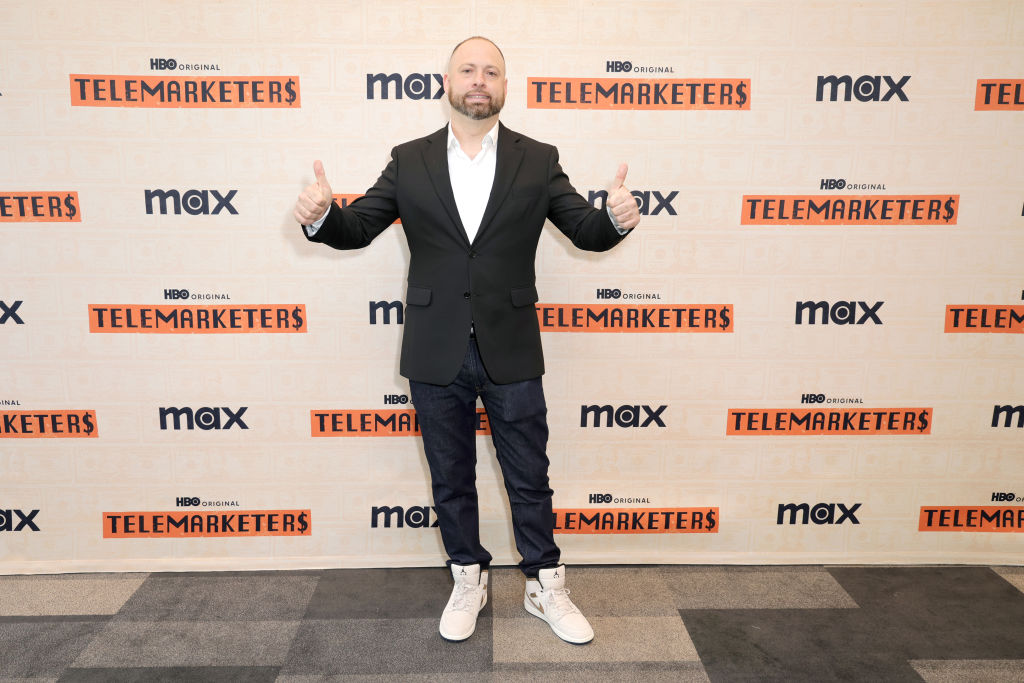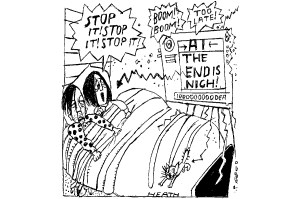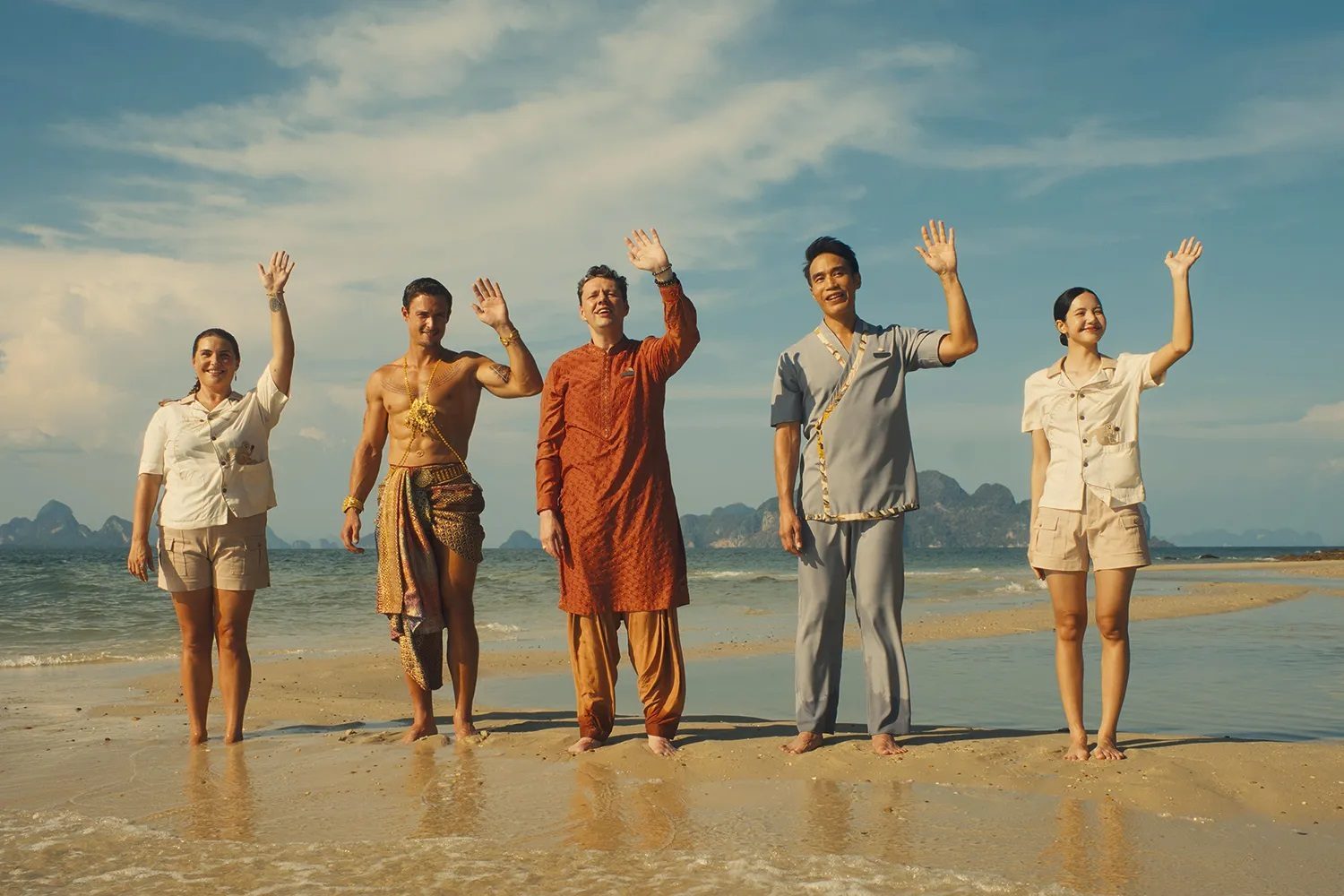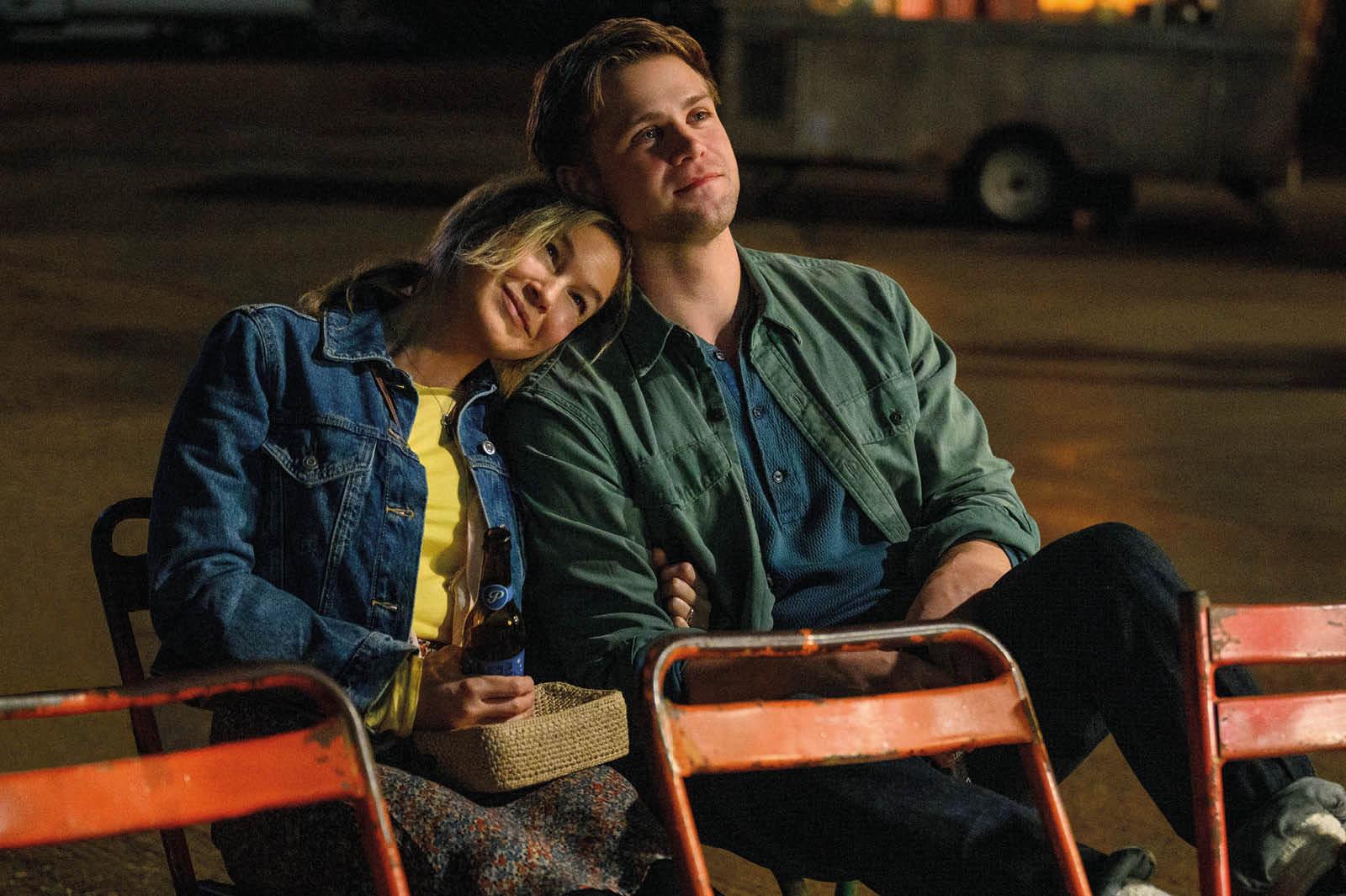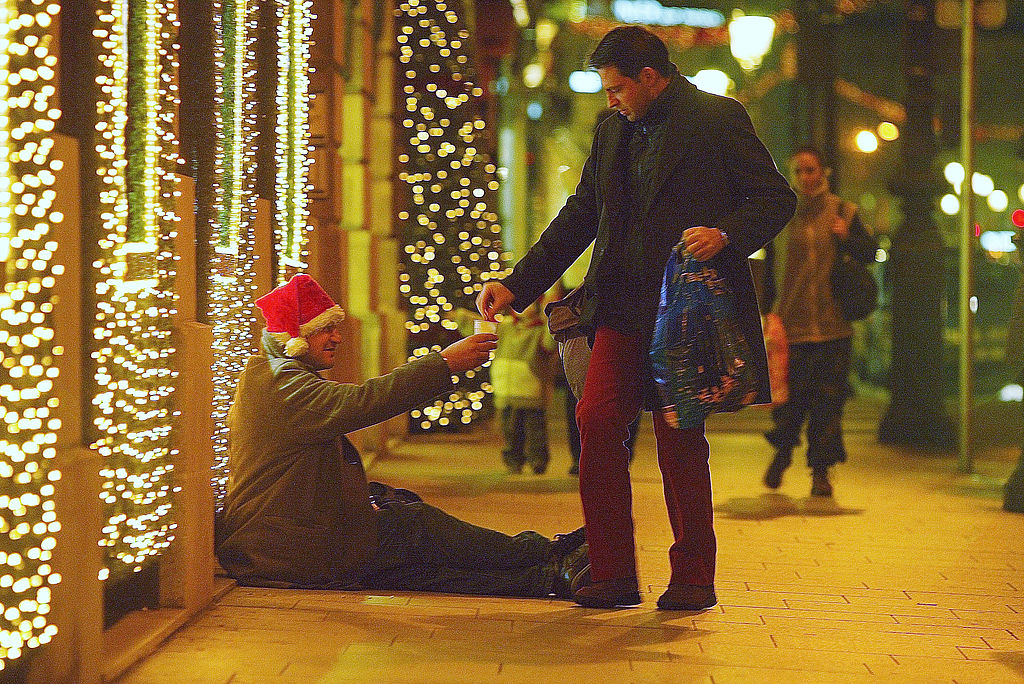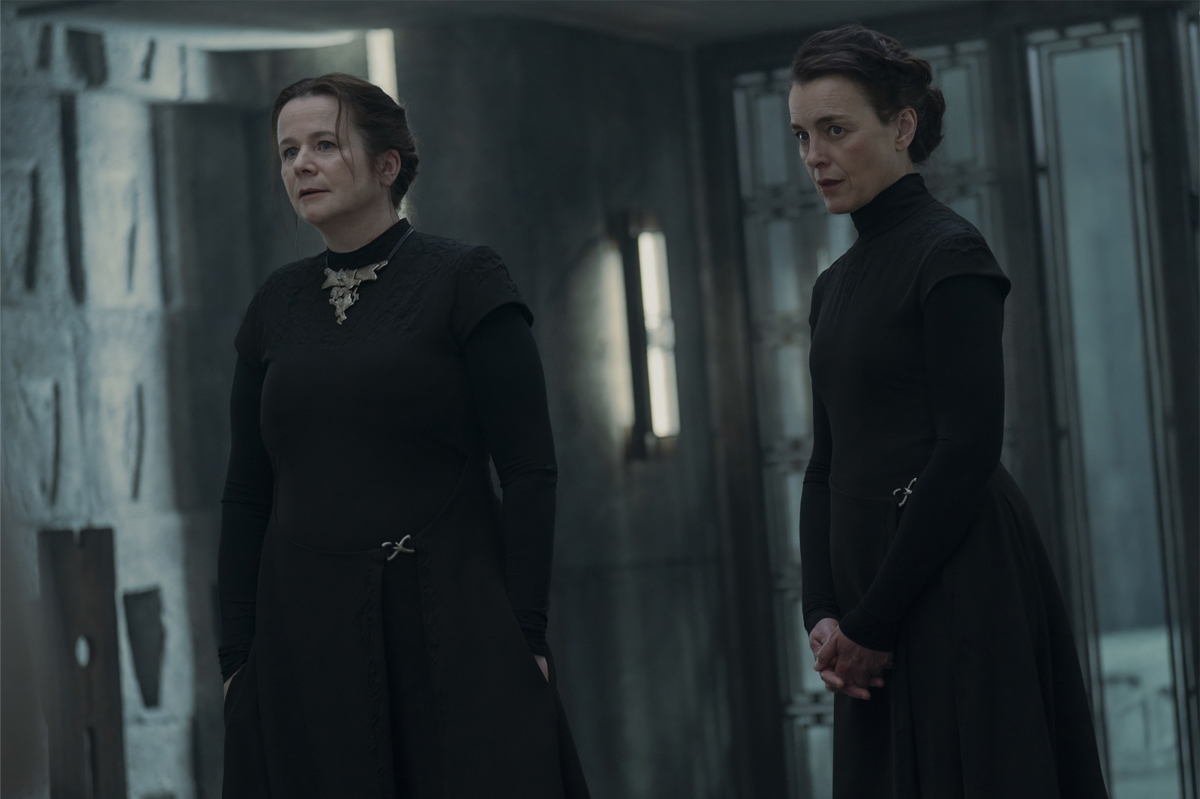In 2001, at the age of fourteen, Sam Lipman-Stern dropped out of high school in New Jersey and started working at the now defunct Civic Development Group (CDG) as a telemarketer. He stayed for seven years, calling up citizens to ask for money on behalf of police charities.
It turned out to be a massive scam.
More than two decades later, Lipman-Stern, now thirty-six and a seasoned filmmaker, has exposed not only CDG — which underhandedly kept 90 percent of the proceeds it raised — but the entire industry in his frenetic, rip-roaring investigative HBO documentary Telemarketers.
Co-directed by Adam Bhala Lough and produced by the Safdie brothers, the three-part docuseries is a wild ride, largely due to Lipman-Stern’s archival footage. Grainy, homestyle videos shot by the then-teenage Lipman-Stern show the CDG employees giving each other tattoos, playing with their pet turtles, slugging booze and conducting wrestling matches. Management did not care about office etiquette, so long as the money kept rolling in.
The Spectator speaks to Lipman-Stern about the documentary, his documentary collaborator and former CDG colleague, Patrick J. Pespas, and their unique brand of citizen journalism.
Tell me about your childhood?
I grew up in an untraditional alternative family. My parents are children of the 60s… hippies would be the descriptive word. We grew up lower-middle class in apartments, but it felt like we lived in a hippie commune. A Puerto Rican shaman lived on the couch. A homeless guy used to live in the pantry. A lady named Phoenix lived in the attic at one point. I basically had total freedom from the time I was thirteen.
Is that how you ended up working as a telemarketer aged fourteen?
They were totally anti-mainstream… so I kind of knew that if I told my parents I didn’t want to go to school they’d be like: cool, no problem. The one thing my parents said: If you leave school you’ve got to get a job, and that’s how I ended up at Civic Development Group at fourteen. I tried applying to Burger King and McDonald’s, and they told me — you’re too young.
How did you get into filmmaking?
The psychic who lived in my family’s attic had a camcorder and she gave it to me. That was the first camcorder I ever had; I was thirteen years old. I didn’t think about filmmaking, but I naturally gravitated towards the camera. As I got older, in my mid-teens, that’s when I started thinking yeah, I do want to be a filmmaker. It didn’t seem tangible, just this big idea.
What was CDG like?
There were a lot of felons there who couldn’t get other jobs. There were a lot of high school dropouts, teenage kids. Then there were just characters who couldn’t have another job because they were eccentric individuals. Everyone hates telemarketers — you’re constantly being cursed at, screamed at. We were at the bottom of society. But at the bottom of society there’s not judgement. We’re all just people trying to get by, ending up in this crazy office.
What was it like for you?
I really grew up there. The people that were CDG lifers, they basically saw me grow up, from a fourteen-year-old to someone in their twenties… It just turned into this dysfunctional family.
One of the things I liked the most about Telemarketers was that you never lionized or demonized the characters who worked at CDG. You just represented them as people.
We wanted to tell the story through the voices of the employees that were on the ground floor. But we never wanted to judge… We’ll all just people who are trying to get by.
One employee at CDG used to say: “Do you want to become rich in America? Start a charity.” That’s pretty cynical…
There’s a great charity industry, lots of great nonprofits and great causes, but the charities that were using our type of telemarketing seemed to be the ones that, in my opinion, were on the shadier side or outright scams… What we learned as we went down the rabbit hole [for the documentary series] is that there’s really little regulation in the charity and nonprofit [sector] — so you get the good, the bad and the ugly. And we were dealing with the ugly side of charity.
Tell us about the CDG “telemarketing legend” Patrick J. Pespas, who becomes your co-collaborator in the exposé.
Patrick — you couldn’t write him into a novel. He was raised by biker gangs. Pat’s father was one of the earliest tattoo artists in New Jersey, named Chris the Greek. He grew up living on the edge. What made Pat a great [telemarketer] caller, was that he was a very pure-hearted person. For all his struggles, he was charismatic, he had a really kind heart, he was a great salesman, he had a hustler’s mentality. He had charisma… he is and was a CDG legend.
What drew Pat to expose the corruption at CDG?
Pat was the perfect person to lead this investigation. Pat was the kind of guy that if your car tire popped, he would stay after hours to fix it with you. Even though he had his struggles, he was always positive, upbeat. He’s just a good human being.
Since your time at CDG, telemarketing has become even more out of control.
The industry is crazier: more calls, more money, and the one positive thing is starting to go away and that’s the jobs, because of AI and robocalls. One of our friends who passed away, as you and I are speaking, his robo-voice is calling people across America [to ask for money]. God rest his soul. It’s a totally different beast. I would hope at least they’d retire the voices after the people passed away. You can’t make it up.
On a personal level, how did you escape the world of telemarketing?
I started working at Vice in 2011 before Vice really blew up… I worked my way up to a director and producer. It was my first real film job right out of college, out of Temple University, out of film school. I’ve been a freelance video person for over a decade, I’ve done Rolling Stone, music videos, foot fetish videos — I’ve done it all.
Foot fetish videos?
I didn’t even know it was a fetish until I got [an] email: “Hey, I like your work. Would you be down to film feet?” It wasn’t porn. There was no sex, it was just women showing off their feet for YouTube. I was twenty-six or twenty-seven at the time. I ended up working for this guy, filming foot fetish videos off and on for a bunch of time. I did it partially because I’m very drawn to characters… I didn’t have a foot fetish, so it made it easy. It was like filming ears!
How do you feel looking back at your own journey?
I was diagnosed with OCD, which has become a blessing in disguise: if it wasn’t for that I wouldn’t have saved boxes of video tapes for fifteen years and made back-ups on back-ups on back-ups of footage [filmed at CDG, which was used for the series]… I feel very happy with my entire upbringing. It allowed me to think outside the box as a creator as a filmmaker — if I hadn’t had left school, I wouldn’t have ended up making this wild telemarketing project.
How is Pat doing today?
Pat’s is doing great. He has been in recovery [for drug addiction]. He has two dreams: he wants to testify in front of Congress on the subject of telemarketing. He wants to have a radio show. I don’t think it will be the last we see of Patrick J. Pespas. Let’s hope.
Telemarketers is now streaming on HBO.



